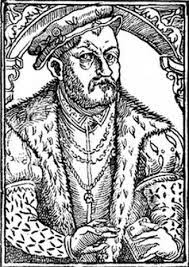Every day brings a new story. And each day contributes to the art of story telling -- in prose and poetry, in music, on the stage, on the screen, and, of course, in books.
Today is the story of February 4th
_______________________________________________________________________________
It is the 35th day of the year, leaving 330 days remaining in 2022.
His birthplace was Żhuravne, then in the Kingdom of Poland, but now part of Ukraine.
He was the first person to write in the Polish language, even though historians consider his writings to be incorrect, coarse, and even crude. However, others say that depiction is based on a stereotype of Rej being an ignorant simpleton.
Although he knew Latin, he chose to write in Polish, saying, "that Poles are not geese, that they have their own language."
He was the son of a nobleman educated at the Jagiellonian University in Kraków and the court of Andrzej Tęczyński in Sandomierz. Some time in his 30s, he converted to Calvinism, which influenced much of his work. His writings combined moralism with humanism and aristocratic culture
His religious texts were some of the first not written in Latin, but in a Biblical-theological langauge he helped develop. He wrote largely in dialogue, using conversations to showcase his moral messages. One of his more famous writings, from 1543, was titled, A Short Discussion Between the Lord, the Voivode (a military leader) and the Parish Priest. It was a critique of his country and a call for reforms.
He also wrote a dramatic play, The Life of Joseph, which was Biblically inspired. His poetry included A Self-Description of the Life of a Decent Fellow, sometimes compared to the works of Dante. Another poem, Mirror, summarized his views on man and the world.
His writings were popular in his time, and Polish kings gifted him with the land grants of at least two villages.
He died in 1569.


No comments:
Post a Comment